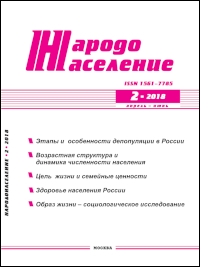Становление, масштабы и механизмы самоорганизации жителей коттеджных поселков
Выражение признательности
РФФИпроект № 17-06-00671
Для цитирования
Овсянников А. А. Становление, масштабы и механизмы самоорганизации жителей коттеджных поселков // Народонаселение. 2018. Том 21. № 2. С. 123-138.
Аннотация
В статье приведены результаты исследования такого социального явления, как строительство коттеджных поселков в России и формирование норм проживания в них. Рассмотрены следующие вопросы: о появлении новых социальных замкнутых и закрытых социальных образований, социальных изолят. Ответ на этот вопрос предполагает изучение механизмов социализации и самоорганизации обитателей этих посёлков, сочетающих и высокие стандарты городской жизни, но и свойства сельских поселений; о жителях коттеджных поселков. Можно констатировать только то, что это представители и самых богатых слоев российского общества, и представители высшего слоя средних классов России (не только жители столицы, но и регионов России и стран ближнего зарубежья). Это люди, вложившие в свои дома и участки не менее 1 млн. долларов США. Но социальные траектории жителей этих поселков и источники привлекаемых ими ресурсов неизвестны и вряд ли измеряемы в социологических исследованиях;о формировании социальной общности поселений коттеджных посёлков, вполне соответствующих сельским поселениям, но городского типа;культурные особенности, ценности и поведенческие практики жителей этих поселений;типологические особенности жителей и повседневность жизни в этих поселениях. Коллективистские практики для организации совместного проживания.
Ключевые слова:
реформа жилищного строительства и обеспеченность собственными домами, коттеджные поселки, особенности приобретения домов и проживания в США и России, образ жизни
Литература
Шевяков А., Кирута А. Измерение экономического неравенства — М.: Межведомст-венный центр социально-экономических измерений, 2002. — 317 с.
Локосов В.В. Богатая Россия и бедное население // Народонаселение. — 2015. — № 4. — С. 6-16.
[Электронный ресурс] — Режим доступа: http://www.compromat.ru/page_37912.htm, от 25.03.2017
[Электронный ресурс] — Режим доступа: https://www.glavbukh.ru/art/91697-projitochnyy-minimum-rossii-2018, от 25.03.2018
Овсянников А.А., Римашевская Н.М. Возлюбившие деньги. Социальный статус бога-тых глазами экспертов. — М.: Изд. ЦКСИиМ, 1995.
Гэд Т. 4D брендинг: взламывая корпоративный код сетевой экономики. — СПб.: Стокгольмская школа экономики в Санкт-Петербурге, 2005.
Овсянников А.А. Современный маркетинг. — М.: изд. Юрайт, 2017. — 376 с.
Средние классы в России. Экономические и социальные стратегии / Под ред. Мале-вой Т. — М.: Гендальф, 2003. — 387 с.
Тощенко Ж.Т. Парадоксальный человек. — М.: Юнити-Дана, 2012. — 543 с.
Кравченко С.А. Становление сложного общества: к обоснованию гуманистической теории сложности. — М.: МГИМО — университет, 2012. — 267 с.
Локосов В.В. Богатая Россия и бедное население // Народонаселение. — 2015. — № 4. — С. 6-16.
[Электронный ресурс] — Режим доступа: http://www.compromat.ru/page_37912.htm, от 25.03.2017
[Электронный ресурс] — Режим доступа: https://www.glavbukh.ru/art/91697-projitochnyy-minimum-rossii-2018, от 25.03.2018
Овсянников А.А., Римашевская Н.М. Возлюбившие деньги. Социальный статус бога-тых глазами экспертов. — М.: Изд. ЦКСИиМ, 1995.
Гэд Т. 4D брендинг: взламывая корпоративный код сетевой экономики. — СПб.: Стокгольмская школа экономики в Санкт-Петербурге, 2005.
Овсянников А.А. Современный маркетинг. — М.: изд. Юрайт, 2017. — 376 с.
Средние классы в России. Экономические и социальные стратегии / Под ред. Мале-вой Т. — М.: Гендальф, 2003. — 387 с.
Тощенко Ж.Т. Парадоксальный человек. — М.: Юнити-Дана, 2012. — 543 с.
Кравченко С.А. Становление сложного общества: к обоснованию гуманистической теории сложности. — М.: МГИМО — университет, 2012. — 267 с.
Форматы цитирования
Другие форматы цитирования:
APA
Овсянников, А. А. (2018). Становление, масштабы и механизмы самоорганизации жителей коттеджных поселков. Народонаселение, 21(2), 123-138. извлечено от https://www.jour.fnisc.ru/index.php/population/article/view/6601
Раздел
ОБРАЗ ЖИЗНИ — СОЦИОЛОГИЧЕСКОЕ ИССЛЕДОВАНИЕ








